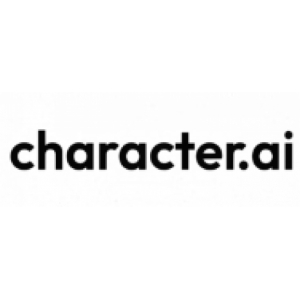Data Scientist, Creator Ecosystems
Character.ai-
Job Type
Full Time -
Experience
6-8 year -
Salary
$150,000 - $250,000 / Year -
Location
Menlo Park, CA, USA
New York City, NY, USA -
Job Function
-
Industry
Information Technology -
Qualification
Key Skills
Job Description
Character.AI is building the future of open-ended interactions between people and intelligent agents. This requires rethinking design, user interfaces, and interactions from first principles.
We are seeking a talented and creative Data Scientist to join our team and play a pivotal role in shaping the user experience of our AI entertainment products. As a Product Designer, you will collaborate closely with cross-functional teams to design innovative, user-centered solutions that delight and inspire our customers. The ideal candidate will have a deep understanding of user-centric design, a strong portfolio showcasing their craft, and a passion for pushing the boundaries of what's possible with AI.
What you’ll do:
We are seeking a highly skilled and experienced Data Scientist with a strong background in consumer products to join our dynamic team. Experience working with open-ended, user-generated content is a major plus.
Qualifications:
- Have 5+ years of experience at leading chat, social media, or UGC product companies
- Have a strong intuition for choosing the right questions to ask and quickly driving to key insights
- Excel at turning findings into actionable next steps and working with engineering to execute
- Enjoy leaning into high velocity experimentation
- Are capable of standing up Character.AI's data science efforts, including the tools and systems that you will need to work effectively as we scale
You will be a good fit if you have:
- iCreator Ecosystems, B2C/C2C marketplace experience for Social Platforms
About Character.AI
Character.AI empowers people to connect, learn and tell stories through interactive entertainment. Over 20 million people visit Character.AI every month, using our technology to supercharge their creativity and imagination. Our platform lets users engage with tens of millions of characters, enjoy unlimited conversations, and embark on infinite adventures.
In just two years, we achieved unicorn status and were honored as Google Play's AI App of the Year—a testament to our innovative technology and visionary approach.
Join us and be a part of establishing this new entertainment paradigm while shaping the future of Consumer AI!
At Character, we value diversity and welcome applicants from all backgrounds. As an equal opportunity employer, we firmly uphold a non-discrimination policy based on race, religion, national origin, gender, sexual orientation, age, veteran status, or disability. Your unique perspectives are vital to our success.
Company Info.
Character.aiCharacter.ai is a neural language model chatbot service that can generate human-like text responses and participate in contextual conversation. Constructed by previous developers of Google's LaMDA, Noam Shazeer, and Daniel De Freitas, the beta model was made available to use by the public in September 2022.
-
IndustryArtificial intelligence,Computer software
-
No. of Employees100
-
LocationMenlo Park, CA, USA
-
Website
-
Jobs Posted
